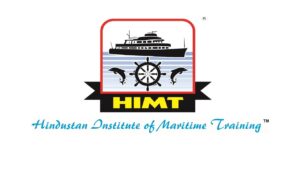Electro Technical Officer (ETO)
An Electro-Technical Officer (ETO) is a professional who plays a crucial role in today’s maritime industry, specifically on ships where advanced electrical and electronic systems are essential.
Key Aspects Of A Electro-Technical Officer Program Include:
Responsibilities
ETOs are responsible for the maintenance, repair, and troubleshooting of electrical and electronic systems on board a ship. This includes power generation and distribution, communication systems, navigation equipment, and control systems.
Electrical Systems
They oversee the ship's electrical power generation and distribution systems, ensuring that all electrical equipment functions properly. This involves monitoring and maintaining generators, switchboards, transformers, and related components.
Electronic Systems
ETOs deal with various electronic systems such as radar, GPS, communication equipment, and automation systems. They ensure the proper functioning of these systems for navigation, communication, and safety.
Automation and Control
They handle automation and control systems that govern the ship's engine, propulsion, and other critical operations. This includes programmable logic controllers (PLCs) and other automated systems.
Troubleshooting
ETOs diagnose and rectify electrical and electronic faults on the ship. Their role involves troubleshooting issues efficiently to minimize downtime and ensure the vessel's safety.
Safety and Compliance
ETOs play a vital role in maintaining safety standards and compliance with maritime regulations. They must ensure that all electrical and electronic systems meet international standards and guidelines.
Training and Supervision
ETOs may be involved in training and supervising the ship's crew in handling electrical and electronic equipment. This includes conducting drills and ensuring that crew members are familiar with emergency procedures.
Emergencies
During emergencies, ETOs are part of the response team. They contribute to emergency procedures, particularly those related to electrical and electronic systems, to ensure the safety of the ship and its crew
Qualifications
To become an Electro-Technical Officer, individuals usually need a degree in Electrical Engineering or a related field. Additionally, they must complete specialized training courses and obtain the necessary certifications as per international maritime standards.
ETO is a critical position, ensuring the smooth operation of a ship’s technical systems. They are an integral part of the maritime industry, contributing to the safety, efficiency, and reliability of modern vessels.
How to become Electro Technical Officer?
To become an Electro-Technical Officer (ETO) in the maritime industry, you typically need to follow a structured path that involves education, training, and obtaining necessary certifications. Here are the general steps:
Obtain a relevant educational qualification, usually a degree in Electrical Engineering or a closely related field. Some institutions may accept degrees in Electronics or Marine Electrical Technology.
In addition to the degree, you may need to complete specialized courses related to marine electrical and electronic systems. Look for courses that are recognized by maritime authorities and institutions.
Complete the STCW (Standards of Training, Certification, and Watchkeeping for Seafarers) Basic Safety Training. This is a set of courses covering firefighting, personal survival techniques, elementary first aid, and personal safety and social responsibilities. These are fundamental for anyone working on a ship.
GMDSS certification is often required for ETOs. This certification demonstrates proficiency in operating and maintaining communication equipment on ships.
Enroll in an ETO course approved by maritime authorities. This course provides specialized training in dealing with electrical and electronic systems specific to the maritime environment.
Gain practical experience through sea service. Many maritime administrations and companies require a certain period of sea service to ensure that ETOs are familiar with the challenges of working on ships.
Depending on the country and the type of vessel, you may need to obtain specific Certificates of Competency (CoC) for Electro-Technical Officers. These certificates are usually issued by the maritime administration of the country in which you intend to work.
Undergo a medical examination to ensure that you meet the medical fitness standards required for seafaring. Good vision and overall health are crucial for a career at sea.
Once you have completed the necessary education, training, and obtained relevant certifications, you can start applying for ETO positions with shipping companies, maritime agencies, or vessel operators.
Stay updated with industry advancements and regulations. Engage in continuing professional development to enhance your skills and knowledge in the rapidly evolving field of maritime technology.
Remember to check the specific requirements and regulations of the maritime authority in the country where you plan to work, as these requirements can vary. Additionally, networking with professionals in the maritime industry can provide valuable insights and opportunities.
Contact Us
About ETO Course
The Electro-Technical Officer (ETO) course is a specialized training program designed to equip individuals with the knowledge and skills required to handle electrical and electronic systems on board ships. Here are key aspects of an ETO course:
Objective
The primary objective of the ETO course is to train individuals to become proficient in managing, maintaining, and troubleshooting electrical and electronic systems on maritime vessels.
Duration
The duration of ETO courses varies among institutions. Typically, it is a short-term-4 month course, depending on the curriculum and practical training components.
Practical Training
ETO courses often include practical training components to provide hands-on experience with actual shipboard equipment. This may involve simulation exercises, workshops, and exposure to real-world scenarios.
Curriculum
The curriculum covers a range of subjects related to marine electrical and electronic systems. Topics may include:
- Shipboard power generation and distribution systems.
- Navigation and communication equipment.
- Automation and control systems.
- Electrical safety procedures.
- Troubleshooting techniques.
- Use of specialized tools and equipment.
Certification
Successful completion of the ETO course leads to the issuance of a certificate. This certificate is often a requirement for individuals seeking employment as Electro-Technical Officers on ships.
Approval and Recognition
ETO courses are typically approved and recognized by maritime authorities or relevant regulatory bodies. It's crucial to choose a course from an institution that adheres to international standards and is recognized by the maritime industry.
Pre-requisites
While specific requirements may vary, individuals interested in ETO courses often need a background in electrical engineering or a related field. Some courses may also have specific academic or professional prerequisites.
STCW Compliance
The course content is aligned with the Standards of Training, Certification, and Watchkeeping for Seafarers (STCW) conventions. Compliance with STCW ensures that individuals receive training that meets international standards for working on ships.
Career Opportunities
After completing the ETO course and obtaining necessary certifications, individuals are qualified to work as Electro-Technical Officers on various types of ships.
Continuous Professional Development
Maritime professionals, including ETOs, are encouraged to engage in continuous professional development to stay updated with technological advancements and industry regulations.
Prospective students should research and choose an ETO course offered by reputable institutions that meet industry standards. Always check for the course’s approval and recognition by relevant maritime authorities.
Salary of Electro Technical Officer
The salary of an Electro-Technical Officer (ETO) on ships can vary based on several factors, including the type of vessel, the shipping company, the individual’s experience, and the maritime industry standards. Here are some general insights:
Entry-Level ETO Salary
Entry-level ETOs may earn a starting salary that ranges from $2,500 to $4,500 per month, depending on factors like the shipping company and the specific terms of employment.
Mid-Level ETO Salary
With a few years of experience, mid-level ETOs can earn salaries in the range of $4,000 to $7,000 per month. This can vary based on the complexity of the vessel's electrical and electronic systems.
Senior-Level ETO Salary
Senior or chief ETOs, who have gained extensive experience and possibly moved up the ranks, may earn higher salaries. Their earnings can range from $6,000 to $8,000 or more per month.
Type of Vessel
The type of vessel can influence salary levels. ETOs on larger and more complex vessels, such as container ships, cruise ships, or offshore platforms, may receive higher salaries compared to those on smaller vessels.
Shipping Company Policies
Different shipping companies have varying salary structures and policies. Some companies may offer additional benefits, bonuses, or incentives, impacting the overall compensation package.
Industry Demand
Industry demand for ETOs can also affect salaries. If there is a high demand for experienced ETOs, companies may offer competitive salaries to attract and retain qualified professionals.
Geographical Location
The geographical location of the shipping company or the region where the vessel operates can influence salary levels. Salaries may be adjusted based on the cost of living in different locations.
Training and Certifications
ETOs with specialized training, additional certifications, or expertise in specific systems may negotiate higher salaries. Continuous professional development and staying updated with the latest technologies can contribute to career advancement and increased earnings.
It’s important to note that the figures provided are general estimates, and actual salaries may vary. Additionally, these figures are given in USD, and currency conversions may apply based on the employer’s location. Prospective ETOs should consider researching industry standards, negotiating terms, and consulting with experienced professionals to understand the salary expectations in the specific context they are interested in.
Best Colleges for ETO course in India
Several maritime institutions in India offer Electro-Technical Officer (ETO) courses. Keep in mind that the popularity and reputation of institutions may change over time, so it’s advisable to verify the latest information. Here are some well-known institutions in India that have been recognized for providing ETO courses:

Indian Maritime University (IMU), Chennai
IMU is a central university dedicated to maritime education. It offers various courses, including ETO programs, and is known for its comprehensive training.

Tolani Maritime Institute (TMI), Pune
TMI is a private maritime institute that has gained a strong reputation for its quality education and training programs, including ETO courses.

Hindustan Institute of Maritime Training (HIMT), Chennai, India
HIMT is a private maritime institute offering various maritime courses, including ETO programs. It is recognized for its modern infrastructure and training facilities.

International Maritime Institute (IMI), Greater Noida
IMI is known for offering ETO courses in addition to other maritime programs. It emphasizes practical training and industry-relevant education.

Great Eastern Institute of Maritime Studies (GEIMS), Mumbai, India
GEIMS is a maritime institute that provides ETO courses along with other marine-related programs. It is known for its commitment to quality education.

CSL - Marine Engineering Training Institute, Kochi
CSL offers various maritime courses, and it is known for its association with the prestigious Cochin Shipyard. They may offer ETO training programs.

Samundra Institute of Maritime Studies, Mumbai
This private maritime institute is known for its comprehensive maritime training programs, including ETO courses.

Anglo Eastern Maritime Academy (AEMA), Mumbai, India
Associated with Anglo Eastern group, AEMA is one of the best colleges offering ETO course in India.
Before making a decision, consider factors such as the institution’s accreditation, faculty expertise, infrastructure, industry connections, and placement records. Additionally, ensure that the ETO course you are interested in complies with international standards and regulations. Always check for the latest updates and verify the current reputation of the institutions you are considering.
